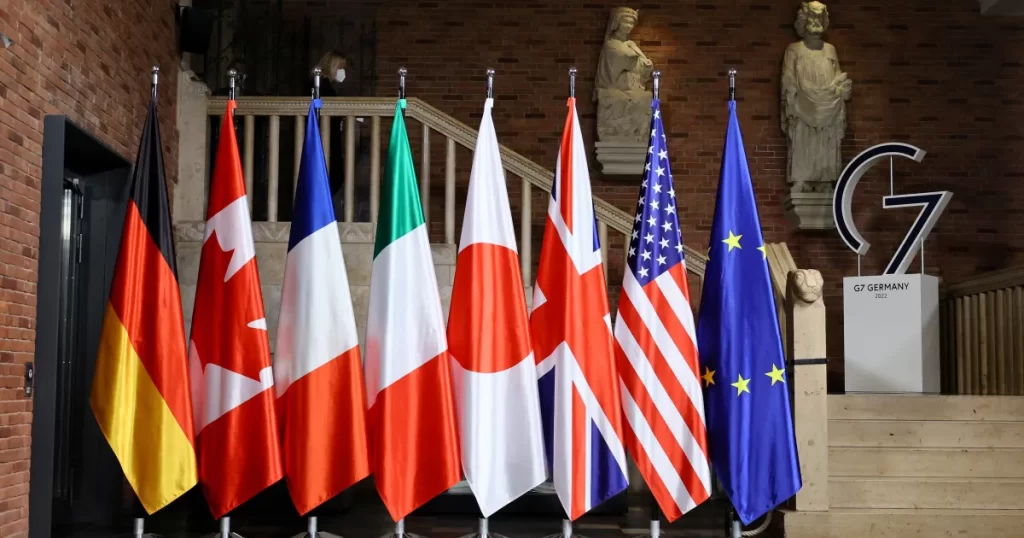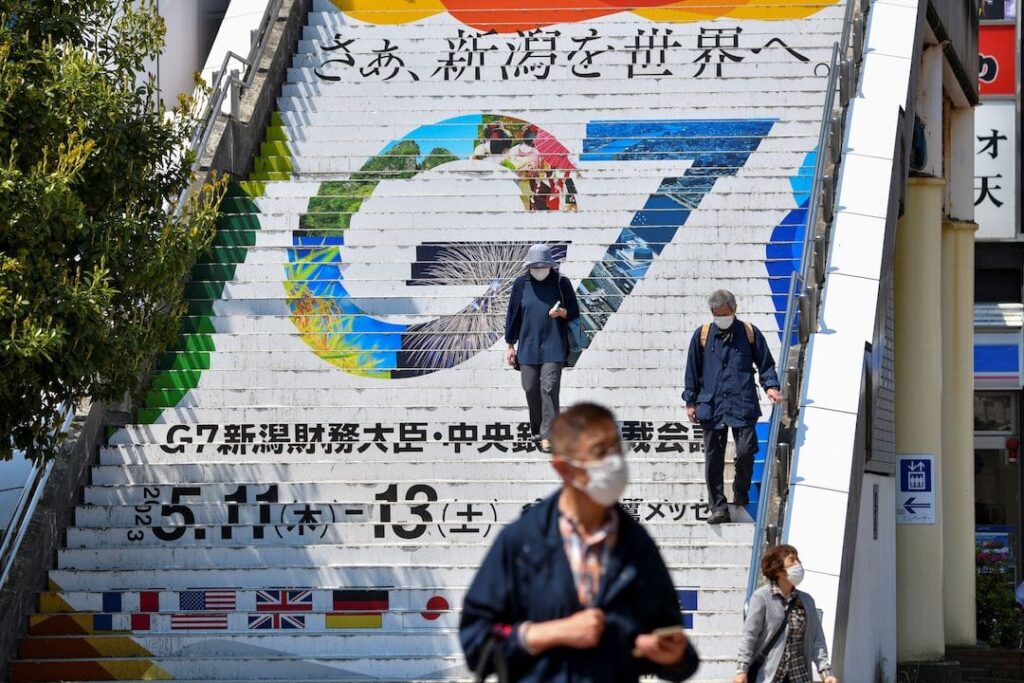As U.S. President Joe Biden lands in southern Italy on Wednesday morning, security measures have been ramped up in preparation for the annual G7 leaders’ summit. The three-day gathering, set to begin on Thursday in Puglia, Italy, will bring together the heads of the seven wealthy democratic nations to collaborate on shared goals and address pressing global issues.

High on the agenda for this year’s summit are the ongoing Russia-Ukraine and Israel-Hamas wars, the energy transition, artificial intelligence, migration, and collaboration with Africa. The leaders of Canada, Britain, France, Germany, Italy, Japan, and the United States will convene at the luxurious Borgo Egnazia resort in the Puglia region, where roadblocks and police helicopters have been deployed to ensure the safety of the attendees.

Notable guests at the summit include Pope Francis, Ukrainian President Volodymyr Zelenskyy, and Turkish President Recep Tayyip Erdogan. Italian Prime Minister Giorgia Meloni, currently the most stable of the alliance’s European Union leaders following recent European parliamentary elections that shook her German and French counterparts, will host the event.

One of the most anticipated outcomes of the summit is a potential decision on the use of frozen Russian assets to provide aid to Ukraine. Last month, G7 finance ministers moved closer to an agreement on a U.S. proposal to maximize the funds available to Ukraine by borrowing against the future interest income from these frozen assets. This approach, championed by U.S. Treasury Secretary Janet Yellen, could provide Ukraine with up to $50 billion in immediate assistance. However, a final deal is yet to be reached and is expected to be a key topic of discussion among the national leaders.
As the world’s attention turns to Puglia, the G7 leaders will have the opportunity to engage in meaningful discussions and develop strategies to address the complex challenges facing the global community. The outcomes of this summit will be closely watched, as they have the potential to shape the course of international relations and impact the lives of millions around the world.



